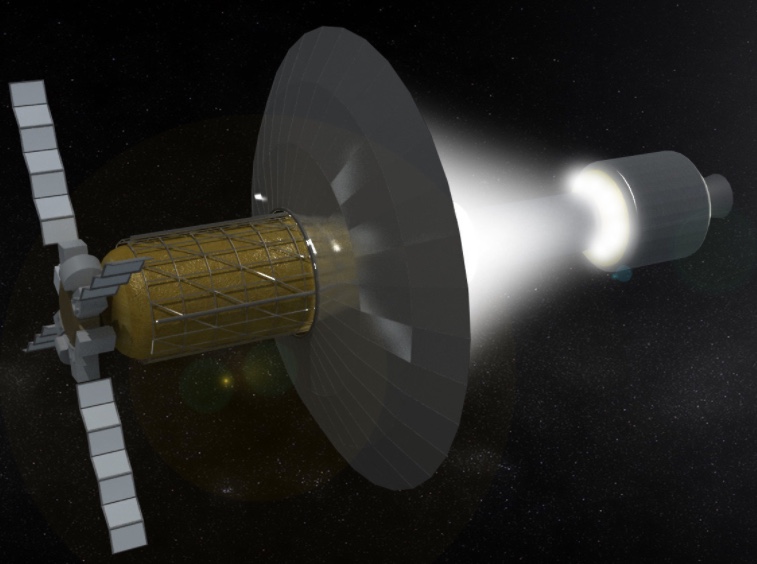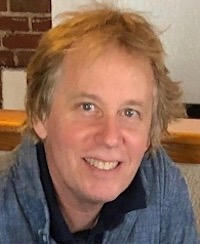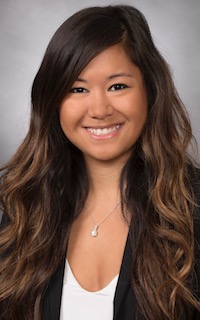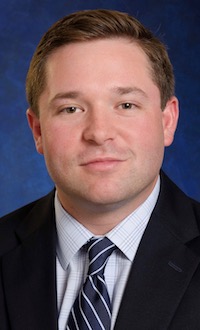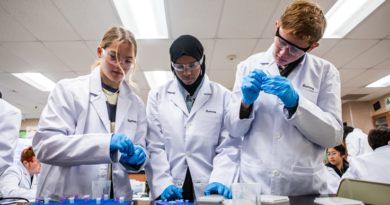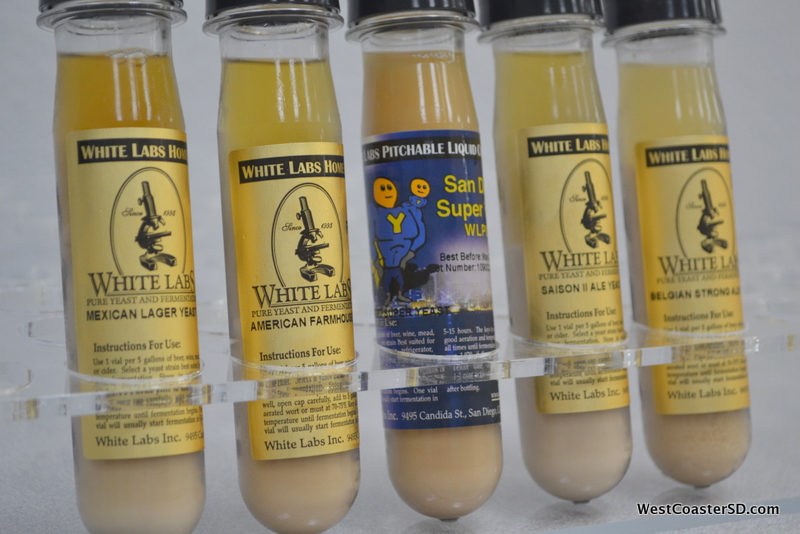Daily Business Report: Tuesday, July 20, 2021
Steel construction completed at Aztec Stadium
The final beam, covered with signatures, was put into place
On July 14, San Diego State University and Clark Construction Group held a steel topping-out ceremony for Aztec Stadium, celebrating a major milestone in its construction.
With the final steel beam hoisted into place on the southeast scoreboard, the structural steel operations for the stadium are now finished, signifying the impressive and rapid progress taking place at SDSU Mission Valley.
In total, more than 2,500 steel beams were placed to support the stadium structure, including this last piece covered with invitees’ signatures. The stadium is on schedule to open in fall 2022, when the Aztec football team will take on the University of Arizona Wildcats in the season home opener on Sept. 3, 2022.
“Today’s construction milestone puts us one major step closer to realizing our vision for SDSU Mission Valley,” said SDSU President Adela de la Torre. “We are just over a year away from welcoming San Diego to its new home for sports and entertainment.”
While this ceremony marks an important accomplishment in the construction of Aztec Stadium, it is also momentous for the development of SDSU Mission Valley overall. Progress toward the completion of the new stadium signals work to come on construction of the River Park, followed by the Innovation District and residential buildings.
PHOTO: The final steel beam for Aztec Stadium was placed on July 14.
Air Force tasks Rhea Space Activity startup to build
rapid-response lunar communications spacecraft
San Diego startup Rhea Space Activity (RSA) announced that it has been selected by the United States Air Force for a Phase I, Small Business Innovation Research 2021 Space Force Pitch Day award to investigate a bi-modal, solar-thermal propulsion system that would provide rapid repositioning capabilities for a future United State Space Force (USSF) deep space communications spacecraft.
Phase I awardees will have the opportunity to showcase their solutions at the Space Force Pitch Day virtual event on Aug. 19.
The proposed craft, dubbed SCORPIUS, will use an origami-inspired, unfolding solar reflector to heat a tungsten block that will vaporize propellant to generate its main propulsion. This multi-role solar reflector will also act as a large-area communications antenna that can also redirect solar light to generate power for all of the spacecraft’s subsystems. This architecture will allow for the USSF to rapidly reposition SCORPIUS in deep space to conduct offensive and defensive communications operations.
San Diego Supercomputer Center heeds
call for a cyberinfrastructure ecosystem
The San Diego Supercomputer Center (SDSC) located at UC San Diego has heeded the National Science Foundation’s call for a cyberinfrastructure ecosystem that meets the needs of today’s data-intensive science.
Proposed as the Prototype National Research Platform (NRP), the innovative, all-in-one system—computing resources, research and education networks, edge computing devices and other instruments—is a testbed for science drivers as diverse as the platform itself to expedite science and enable transformative discoveries.
For this first-of-its-kind resource, the NSF awarded SDSC $5 million over five years, with matched funding for systems operation. The award will support hardware and deployment across three facilities: on the East Coast at the Massachusetts Green High Performance Computing Center (MGHPCC) in Mount Holyoke, Mass.; in the Midwest at the University of Nebraska–Lincoln (UNL) and on the West Coast at SDSC, as well as five data caches in the Internet2 network backbone.
Study finds promising therapeutic target for colitis
An international research group led by Jamey Marth, a professor at Sanford Burnham Prebys, has shown that the Neuraminidase 3 (Neu3) enzyme is responsible for the onset and progression of colitis—a chronic digestive disease caused by inflammation of the colon.
The study, recently published in the Proceedings of the National Academy of Sciences, was performed in a model of recurrent human food poisoning previously linked with the condition. The findings represent a scientific advance toward a targeted therapy to help the millions of people worldwide affected by the disorder.
“Our new research demonstrates how increased activity of Neu3—an enzyme found in the gut—triggers an inflammatory cascade that leads to disease,” says Marth. “Prior to this study, we knew that a neuraminidase enzyme was involved, but didn’t know the source of the enzyme.
Steve Carmichael appointed chief risk and
compliance officer at Encore Capital Group
Encore Capital Group Inc.,an international specialty finance company, announced the appointment of Steve Carmichael to the role of senior vice president, chief risk and compliance officer for the company. He will report to Encore President and CEO Ashish Masih and serve on the company’s Executive Leadership Team.
Carmichael comes to Encore from Discover Financial Services, where he has served as head of enterprise and financial risk management since 2019, having oversight of its enterprise, credit, liquidity, market and counterparty risk functions. Prior to that, Carmichael served as Discover’s chief compliance officer and head of corporate risk strategy.
Earlier in Carmichael’s career, he held senior strategic roles for financial institutions including Capital One, HSBC and Wells Fargo. He has a bachelor’s degree from Vanderbilt University, an MBA from the University of Michigan, and is a graduate from the Wharton Advanced Risk Management Program at the University of Pennsylvania.
Mei-Ying Imanaka elevated to partner at
Solomon Ward Seidenwurm & Smith LLP
Solomon Ward Seidenwurm & Smith LLP has promoted Mei-Ying M. Imanaka to partner of the firm. A member of the firm’s litigation practice group, Imanaka advises businesses and individuals in a wide range of disputes in federal and state court.
She has extensive experience representing both plaintiffs and defendants in business litigation, labor and employment, class and collective action and unfair competition matters.
Imanaka received her Juris Doctor from the University of California, Hastings College of Law, where she was awarded the highest grade distinction for Trial Advocacy, and her Bachelor of Arts in international studies with a minor in political science from the University of San Diego.
A member of the California State Bar and the San Diego County Bar Association, Imanaka is admitted to practice before the United States District Courts for the Southern, Central, Northern and Eastern Districts of California. She has been awarded the distinction of Super Lawyers Rising Star for six years in a row.
Brixton Capital hires Craig Boone as asset manager
Commercial real estate investment firm Brixton Capital, headquartered in Solana Beach, has hired Craig Boone as asset manager. He will serve as Brixton’s primary representative in Texas, where Brixton plans to significantly expand its portfolio of multi-family properties.
Boone is responsible for execution of the strategic plans for all Brixton’s multi-family assets under management in Texas and throughout the Western states. He will work closely with property management firm UAG.
“Our firm currently owns approximately 1,500 multi-family homes throughout multiple states, and we have a goal of adding approximately 10,000 multi-family units to our Texas portfolio over the next five years,” said Mark Selman, president of Brixton Capital. “Craig’s background in finance and asset management gives him a layered understanding of our business and the tools to help expand it. He will also help grow our asset management department, and his input will be valuable to our acquisitions team.”
UC San Diego admits record 52,946 first-year and transfer students
The University of California San Diego has admitted 40,616 first-year and 12,330 transfer undergraduate students for the fall 2021 quarter — a record. More than one-third of first-year students and over half of transfer students admitted to UC San Diego will be the first in their family to attend a university.
UC San Diego received more than 140,000 applications for fall 2021, the second highest in the nation. The campus’s Admissions team read stories of students studying from their apartment balcony or bathroom because it was the only quiet place they could find. They heard about students who took on an extra job or caretaking responsibilities to help support their family, including tutoring younger siblings. The common theme was applicants demonstrating perseverance in a year marked by numerous challenges.
“We recognize the persistence and resolve of our current and newly admitted students, who continue to advance their higher education goals despite the myriad challenges of the past year,” said Executive Vice Chancellor Elizabeth H. Simmons. “This fall we look forward to welcoming our newly admitted students, as well as our second-year students, who will now have the opportunity to experience learning and build community with fellow Tritons in-person.”
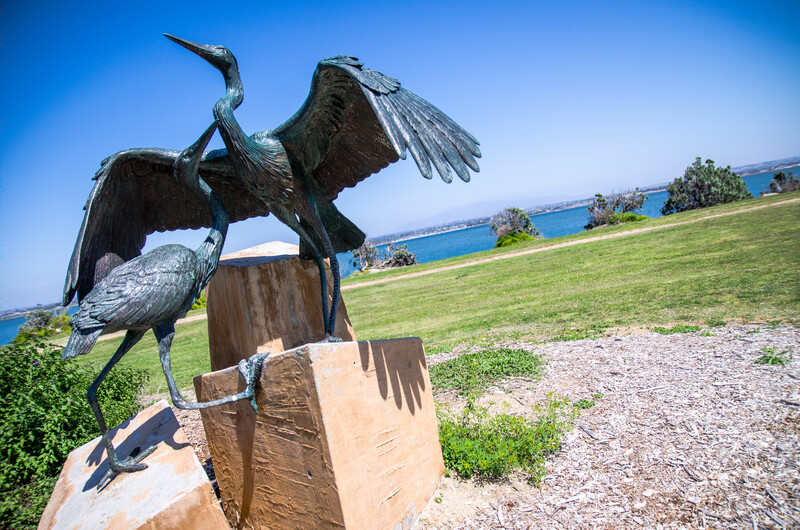
Port and City of Coronado to celebrate 25th
anniversary of Grand Caribe Shoreline Park
The Port of San Diego and the City of Coronado are hosting a celebration to commemorate the 25th anniversary of Grand Caribe Shoreline Park and its artwork “Sheltering Wings” on Friday, July 30, 2021, from 9:30 to 11 a.m. at the park, 598 Grand Caribe Causeway, in Coronado.
The event will feature live music entertainment, informational booths, and the opportunity to learn about the process of creating “Sheltering Wings” from the artist, Christopher Slatoff.
“Sheltering Wings” is a bronze sculpture of two full-size blue herons located in the center of Grand Caribe Shoreline Park. The idea of a blue heron sculpture originated with the Silver Strand Beautification Committee. Artist Christopher Slatoff created the artwork as a tribute to the rare birds that can be seen feeding and resting on Grand Caribe Isle.
San Diego Community Colleg District seeks
public input on redistricting process
The San Diego Community College District Board of Trustees is seeking public input as it moves forward with a redistricting process that will include updates to the maps used to elect its five-member board.
In addition, the SDCCD is proposing to transition to “by-trustee area” elections commencing with the 2022 election cycle. In the past, trustee candidates would first run in district-only elections with the top two vote getters in each district then running in a citywide general election.
The SDCCD has hired a mapping and demographics consultant and will be holding a public hearing at its regular Board meeting on July 22 to receive public input regarding the redistricting process based on maps of estimated population growth in current trustee areas.
A revised timeline of activities for census-based redistricting and transition to by-trustee-area elections will also be presented. Draft trustee-area maps will be presented at a public meeting after the U.S. Bureau of the Census releases 2020 Census data in the fall.
The district’s five trustees are elected in even-numbered years to four-year terms by the voters of San Diego. In addition, three SDCCD students also serve a one-year term filling a student trustee position on a rotating basis.
State of Delaware selects Quidel for COVID-19
testing program at five pilot schools
Quidel Corporation is entering a partnership with the State of Delaware to implement a full-service, turn-key COVID-19 testing program to support the reopening of K-12 schools in the fall through its new service provider, Quidel Services LLC.
Under Quidel’s full-service program, Quidel will be responsible for staffing test locations, coordinating sample collection, running the tests, and reporting results to the Delaware Division of Public Health (DPH) and the participating schools and school districts to provide asymptomatic COVID-19 screening. Students and faculty that opt-in to the COVID-19 screening program will be tested with Quidel’s rapid antigen tests.
DPH and Delaware’s Department of Education will launch the initiative at five pilot schools for summer school enrollees. Quidel can expand the program to all of the State’s K-12 schools when classrooms fully reopen for the fall semester. Under the optional program, parental permission is required for participating students.


